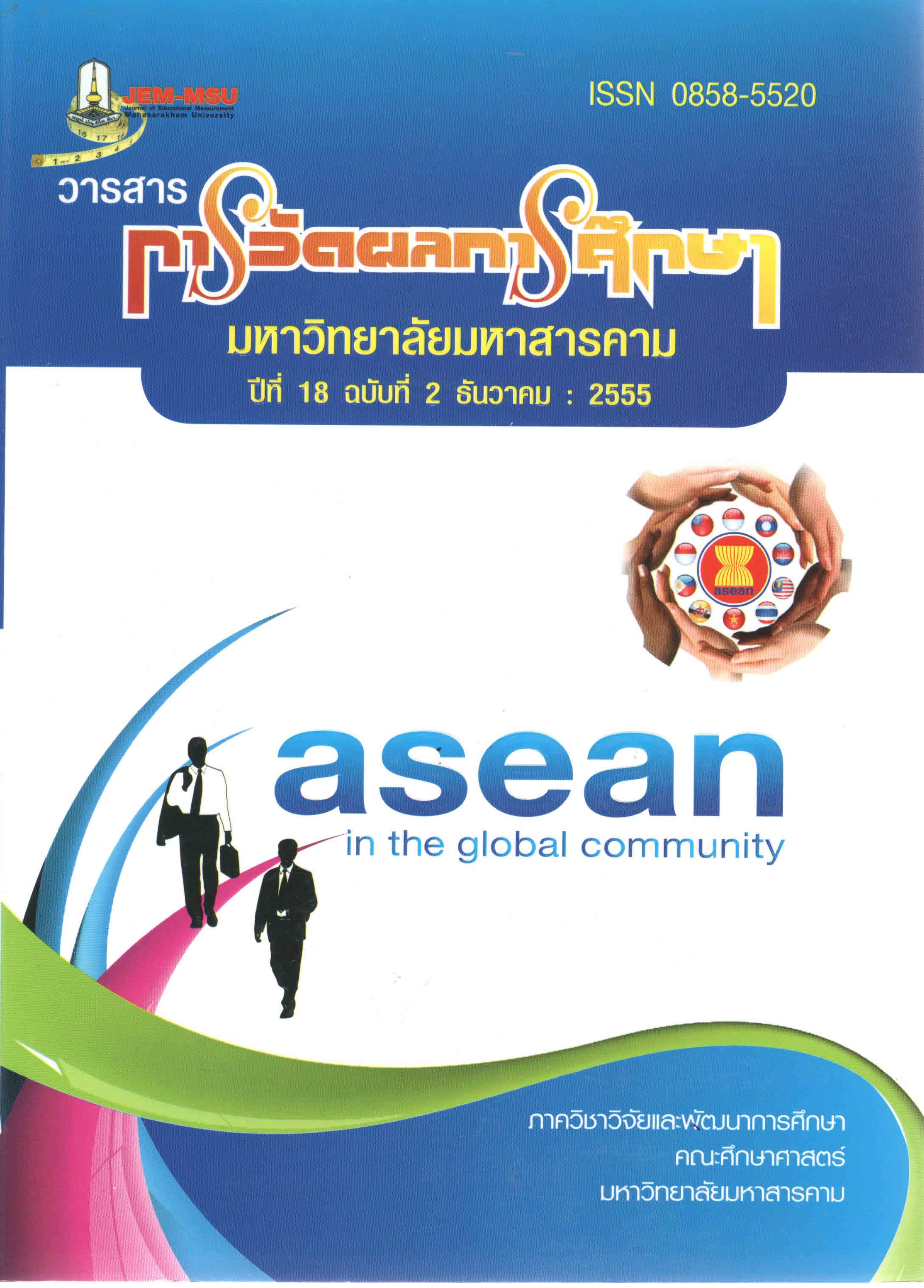LIFE SKILLS CURRICULUM DEVELOPMENT BY USING THINKING-BASED LEARNING FOR PRATHOMSUKSA 6 STUDENTS
Main Article Content
Abstract
The purposes of this research were to develop and to study the effectiveness
of Life Skills Curriculum by using Thinking-based learning for Prathomsuksa 6 students.
The curriculum development comprised of four stages. 1) Studying and Surveying Fundamental
Data. 2) Constructing the curriculum. 3) Implementing the curriculum, and 4) Evaluating and
Revising the curriculum.
The results of processes got five factors of Life Skills (Five Smarts) as follows : 1)
Thinking Smart : T-Smart 2)Decision Making and Problem Solving Smart : D-Smart 3)
Communication & Social Skills Smart : C-Smart 4) Emotional Control & Coping Stress Smart : ESmart 5) Self – Smart : S-Smart. The curriculum components are the background of problems,
purpose, content of the curriculum are 10 units, activities, media/instruments and leaning
resources and evaluating methods. There are 31 activity plans using 32 hours for activities
organizing. (31st activity plan was used 2 hours) There are 5 steps for the lessons as follow that :
1) Motivation 2) Sharing 3) Thinking 4) Producing 5) Conclusion, Evaluating and Applying.
Evaluating the Effectiveness of the curriculum using pretest- posttest control group design. The
sample of this research is Prathomsuksa 6 students of Ban Nongmihaudong (Prachawittayakarn)
School of 2011 academic year during the first semester. The results of this research indicated
that : The posttest mean score in life skills of the experimental group were significantly
higher than pretest at .05 level. The posttest mean score in life skills of the experimental
group were significantly higher than control group at .05 level and the development of
life skills behavior of the experimental group tend to be higher level. The Evaluation
indicated that the effectiveness of the curriculum was in criteria.
Article Details
The content and information contained in the published article in the Journal of Educational Measurement Mahasarakham University represent the opinions and responsibilities of the authors directly. The editorial board of the journal is not necessarily in agreement with or responsible for any of the content.
The articles, data, content, images, etc. that have been published in the Journal of Educational Measurement Mahasarakham University are copyrighted by the journal. If any individual or organization wishes to reproduce or perform any actions involving the entirety or any part of the content, they must obtain written permission from the Journal of Educational Measurement Mahasarakham University.


